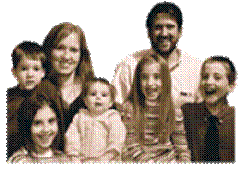Black Friday is generally the biggest one-day shopping day of the year, and the “beginning” of the Christmas shopping season. With the rise of online shopping has come the advent (excuse the pun) of Cyber-Monday, which offers a whole new way to get great shopping deals leading up to Christmas. By all accounts, both Black Friday and Cyber-Monday were outstanding successes this year.
It is not just about Christmas shopping, though. This year I saw news pieces about people finding great shopping deals to buy for themselves. It seems that the season is not just about giving. It is about getting the best deal that you can on something you want.
While America is shopping, the world, it seems, is sinking into deeper and deeper trouble. Our Secretary of State, Hillary Clinton, is currently in Myanmar (Burma), one of the world’s greatest abusers of human rights and a country suspected of cooperating with North Korea on ballistic missiles. In addition, world-wide economic woes continue, with general concern around the world about the impending collapse of economies in Europe.
While pondering these national and international issues and with Christmas approaching, I have been pondering two passages of Scripture that ought to give us hope. It seems that Jesus came into a world where personal selfishness and international turmoil reign. Behind it all is the ongoing battle between good and evil. In the midst of that battle, Jesus brings us hope and ultimate victory.
Micah 5:1-4 predicted the birth of a new ruler would take place in Bethlehem at a time when a siege was laid against Israel that would strike their ruler with a rod. Although Bethlehem was an insignificant place in Israel, this coming ruler was tied to the nation’s heritage — his “origins are from of old, from ancient times.” Micah prophesied that “He will stand and shepherd his flock in the strength of the Lord, in the majesty of the name of the Lord his God” and “his greatness will reach to the ends of the earth.” The baby born in Bethlehem would bring stability to a world of selfishness and turmoil.
The great victory that Christ’s birth brings into the world is underscored in Revelation 12 when the scenes from the birth of Jesus that we read about in the Gospels are set in cosmic terms. One commentator says that the Gospels tells us the story of Jesus’ birth from an earthly viewpoint, while Revelation 12 tells us the story of Jesus’ birth from a heavenly viewpoint.
In Revelation 12 the story pictures “a woman clothed with the sun, with the moon under her feet, and a crown of twelve stars on her head” who cries out as she is about to give birth. Then an enormous dragon attacks with the purpose of devouring her child as soon as he is born. The child is protected, resulting in a war breaking out in heaven. But the dragon is defeated, and a loud voice from heaven announces the salvation and power and the Kingdom of God that have come as a result.
Both Micah and Revelation show us the great battle we are engaged in that is, in part, a product of the selfishness and turmoil of our world. In the midst of the battle a child is born. He is born in the humblest of circumstances, but he is the greatest child, the greatest king of all who will yet rescue the world for God. That is the story of Bethlehem.


![clip_image002[5] clip_image002[5]](https://blogger.googleusercontent.com/img/b/R29vZ2xl/AVvXsEgZUJwWmAu7v4MJN8hY2ZVSa2pLzMuNWrHgcZ_kF_5N-PjwOJKRH-tUfgWhx6W1wXJH_nkeLzjEvFo-HsYTU42RyvvPMgMuTxBwpXPnLNk0uxzC609pwmB9To6zNkUKWxTQH22tTI9Mc9kd/?imgmax=800)





























